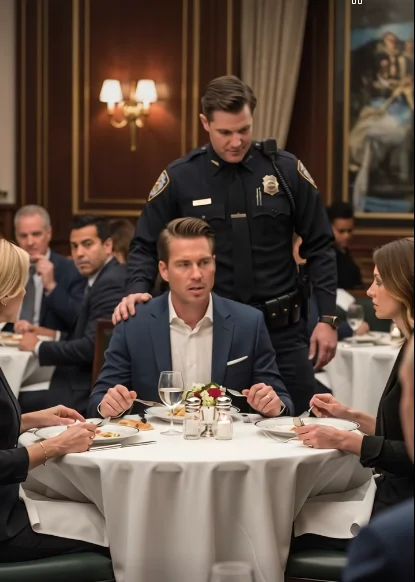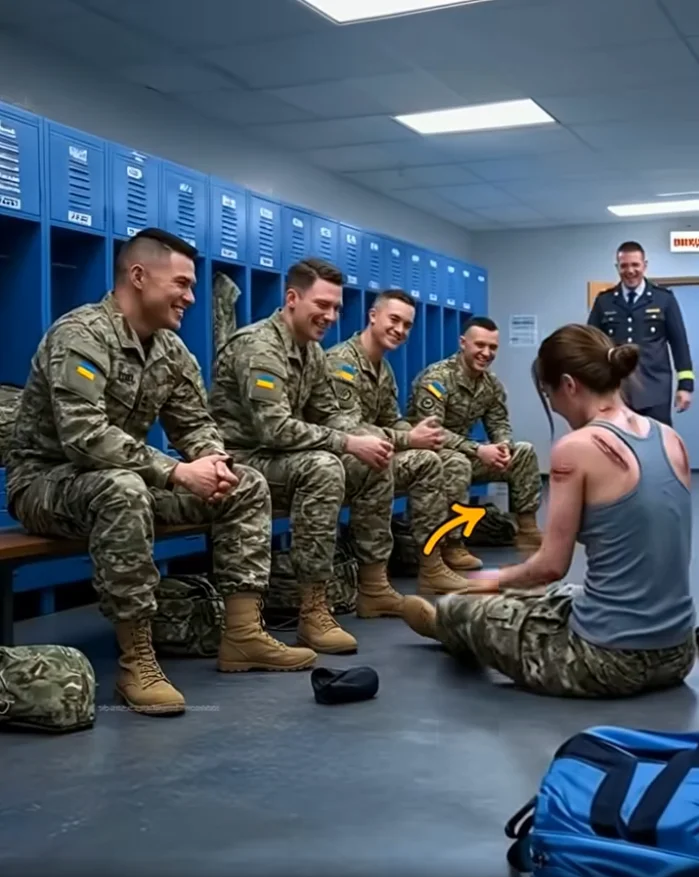It was the kind of message you don’t forget—not because of what it said, but because of what it revealed.
“Can’t leave lunch with Charlotte right now. Her ex is stalking her. Call an Uber. Sorry, babe.”
Those 23 words came through my shattered phone screen while I lay in a hospital bed, bloodied, bruised, and barely breathing through the pain of a dislocated shoulder. With trembling fingers, I typed back the only word I could manage: Okay.
That single word would end my marriage.
But Tyler didn’t know that yet. He was too busy playing emotional bodyguard for his “best friend,” Charlotte Thomas, to realize that his wife was lying alone in the emergency room at Riverside General, making a choice between painkillers and heartbreak.
That Morning
The day had started like any other. I was up at 6:30 a.m., making Tyler’s usual breakfast—two eggs over-easy, crispy bacon, wheat toast with just a touch of butter. Eight years of repetition had turned it into muscle memory.
As I buttered the toast, I reminded him about my company’s award dinner that night. I was set to receive a five-year service plaque. He nodded, distracted, glued to his phone. He smiled at something on the screen—soft and secretive, the kind of smile he used to give me.
“Charlotte’s having another crisis,” he said, barely glancing up.
“Another one?” I asked, trying to stay calm.
“Her ex is stalking her again.”
It was always something. Thursday after Thursday, Charlotte needed “support,” and Tyler would be gone for hours. A pattern had emerged—and so had my suspicions. She wasn’t just some emotionally fragile friend going through a rough divorce. She was the center of his world now. I was a satellite—orbiting quietly in the background.
The Crash
That night, rain started falling as I left work. I was already exhausted, mentally preparing for the awkward explanations I’d have to give at the dinner when Tyler didn’t show. As I approached a green light at Fifth and Madison, I noticed a massive pickup truck speeding toward the intersection.
He’s not stopping.
The impact crushed the driver’s side of my car. I remember the sickening crunch of metal. I remember blood. I remember the rain through the cracked glass. And I remember the gold ring on my finger—our wedding band—now soaked in my blood.
I woke up in the ER to harsh fluorescent lights and a doctor resetting my shoulder. A nurse—Patricia—stood nearby with kind, tired eyes. She told me they’d called my husband three times. No answer. Straight to voicemail.
He had turned off his phone.
With my good hand, I sent a text:
“Had an accident. At Riverside General ER. Concussion, dislocated shoulder. Can you come get me?”
I waited. The typing dots appeared. Then disappeared. Then finally:
“Can’t leave lunch with Charlotte right now. Her ex is stalking her. Call an Uber. Sorry, babe.”
I stared at it for a long time. It wasn’t just the words. It was the choice he made—the clear, cold decision to not show up. Not just physically, but emotionally. In the moment I needed him the most, he chose someone else.
Calling in Backup
Patricia asked if someone else could come get me. I told her no—but I needed to make a different kind of call.
I rang Officer Janet Morrison, a local cop who picked up prescriptions from my pharmacy. When she answered, I calmly told her about the crash and where Tyler could be found: the Sterling Room on Fifth Street, at his usual window-side table, with Charlotte.
“Would you mind sending an officer to let him know?” I asked. “I just want to make sure he understands how serious this is.”
She understood—instantly and completely. “We’ll handle it, Hannah.”
I could practically see the scene: Tyler smiling at Charlotte across the white linen tablecloth, sipping a glass of wine—until two officers walk in and announce that his wife had been in a serious accident, and they’d been dispatched because he didn’t answer his phone.
Let the public shame begin. The real consequences would follow.
The Fallout
My younger brother, David, showed up at the hospital two hours later. Furious. Protective. Ready for war.
“He told you to take an Uber?” he asked, shaking. “Show me the texts.”
After reading them, he made some calls. Martinez the locksmith would be at my house the next morning. Morrison Moving would handle the packing—every last piece of Tyler’s existence boxed up and waiting by the door. By noon, sixty-three boxes sat in the entryway like tombstones.
My neighbor, Mrs. Chin, dropped off soup and quietly confessed she’d seen a woman in a white BMW parked in my driveway on Tuesday afternoons—while I was at work. Charlotte’s car. Charlotte in my home. Charlotte in my bed.
The Last Visit
Tyler came by the next day with his mother, Eleanor, who barked orders like a field commander. The doorbell camera caught the whole thing.
I didn’t open the door. David handled the interaction.
“The boxes are inside. Door will unlock remotely. You have 48 hours to collect everything.”
Box by box, Tyler carried out the fragments of our life together: golf clubs, designer shoes, his custom bourbon glasses. He paused at a box labeled Wedding Photos, shoulders slumped.
His mother snapped at him: “Hurry up. Charlotte’s been calling nonstop.”
Even in the aftermath, she was still his priority.
Aftermath
In the following months, the cracks widened.
A coworker sent me a photo of Tyler slumped over a bar, ranting about how I’d “overreacted to a fender bender.” His father came to the pharmacy for blood pressure medication and told me Tyler now called in sick every Thursday—unable to face the day once filled with secret excitement.
Two months in, I got an email. Three pages long. Therapy. Regret. “Doesn’t eight years deserve a second chance?” No. Not anymore.
I set a filter so anything from him would go straight to the trash.
Freedom
Six months later, my townhouse was full of life again. Friends laughed at my dinner table, their voices echoing off walls that once felt so cold. David cooked. My thrift-store plates were mismatched but full. No perfume haunted my bedroom. No anxiety crept in on Thursdays.
The scars had faded, but I wasn’t hiding them. They were reminders—not of what I’d lost, but of what I’d reclaimed.
And on a warm Thursday afternoon, I sat on my couch, sunlight streaming through the windows, book in my lap, house quiet.
I was alone. But more importantly, I was at peace.




